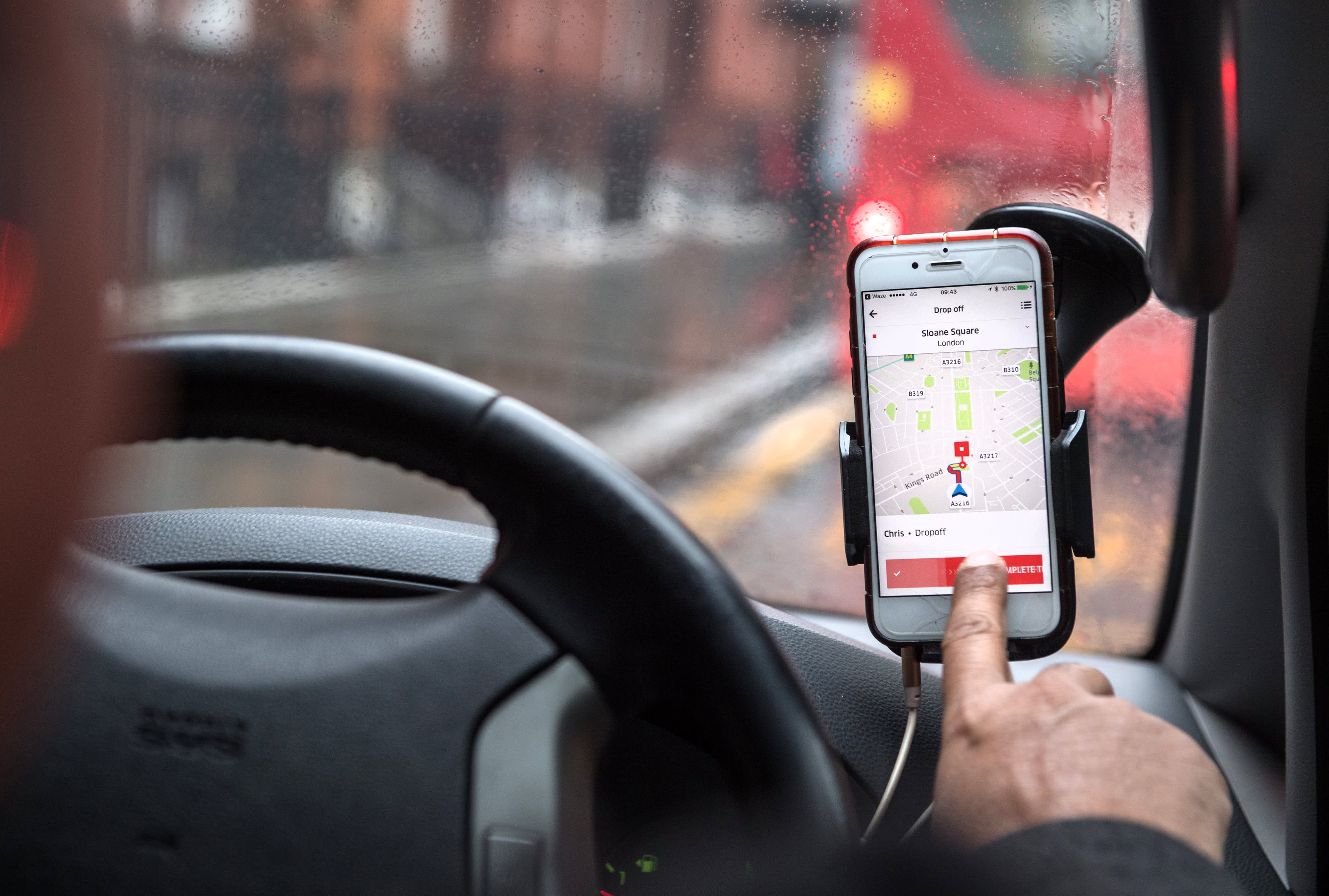Uber dealt a major blow in the UK as top court rules its drivers are workers

A driver uses the Uber app to drop off a passenger in London.
Chris J. Ratcliffe | Bloomberg via Getty Images
LONDON — Uber lost a crucial legal fight in the U.K. on Friday, as the country’s Supreme Court upheld a ruling that its drivers should be classified as workers rather than independent contractors.
The Supreme Court voted unanimously to dismiss Uber’s appeal against the ruling.
The verdict concludes an almost five-year legal battle between Uber and a group of former drivers who claim they were workers entitled to employment rights like a minimum wage, holiday pay and rest breaks.
In 2016, an employment tribunal ruled in favor of a group of former Uber drivers, led by Yaseen Aslam and James Farrar, who claimed they were workers employed by Uber and therefore entitled to certain labor protections.
Uber insists its drivers are self-employed and that it acts as more of an “agency” which connects them with passengers through an app. Uber wants to keep the legal classification of its drivers as independent contractors unchanged, arguing drivers prefer this “gig” model as it’s more flexible — it also benefits Uber from a cost perspective.
The U.K. case echoes Uber’s legal fight with Californian regulators, who last year attempted to reclassify drivers of Uber and other ride-hailing services like Lyft as employees to grant them more employment protections.
But voters supported a ballot measure called Proposition 22, which exempted Uber and other gig economy platforms from reclassifying drivers as employees.
The Supreme Court ruling potentially jeopardizes Uber’s business model in the U.K. The company will now have to go back to the employment tribunal to determine compensation for the drivers involved in the case. It could also face claims from thousands of other drivers in the country.
It also has major implications for Britain’s gig economy, which is thought to have a workforce of around 5.5 million people. Other companies operating a similar model to Uber’s include Bolt, Ola and Deliveroo.